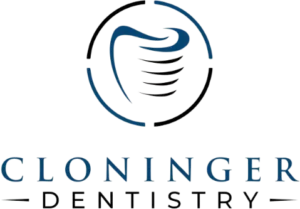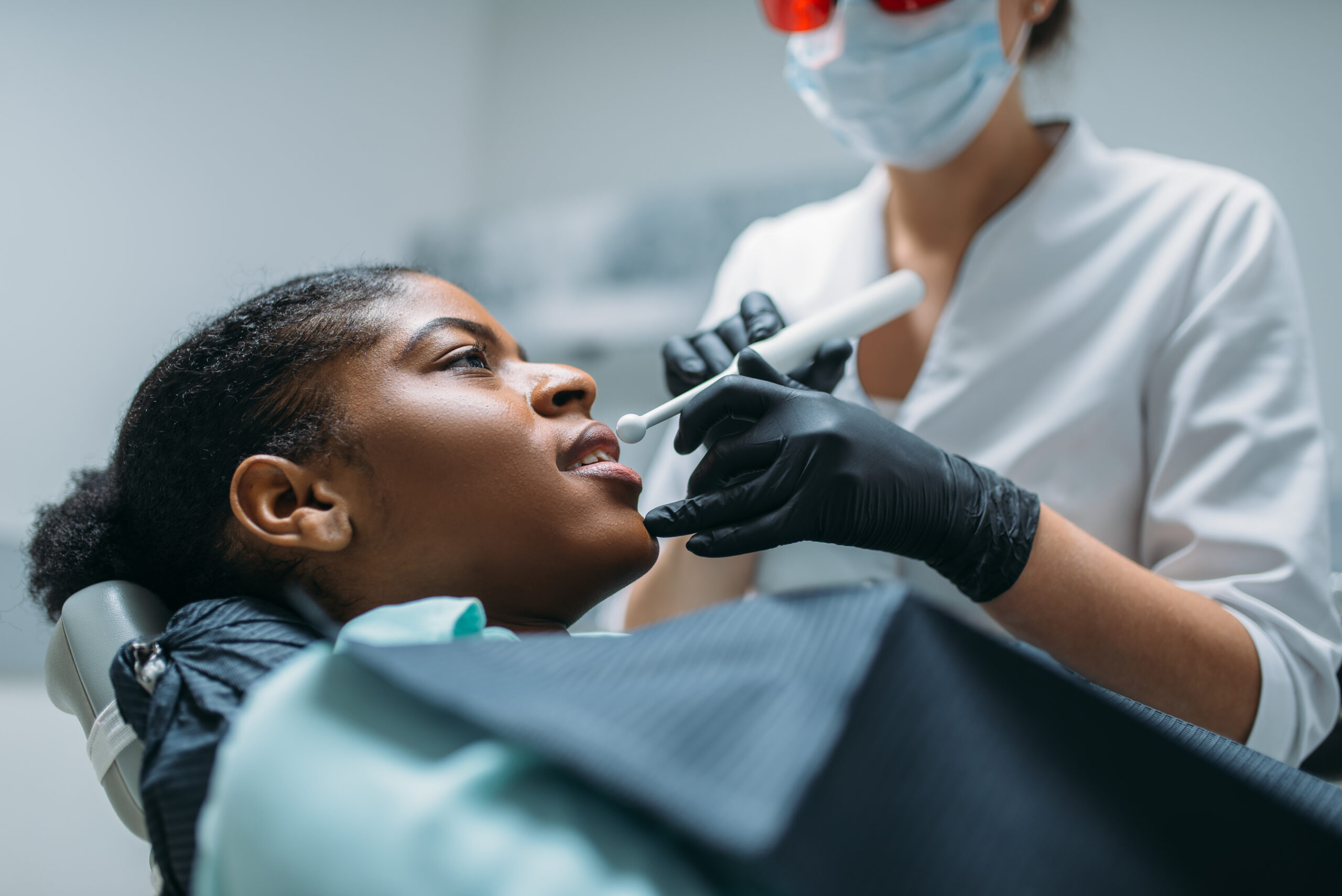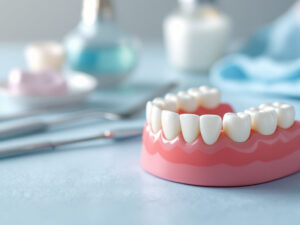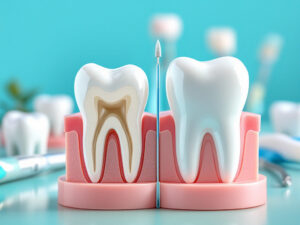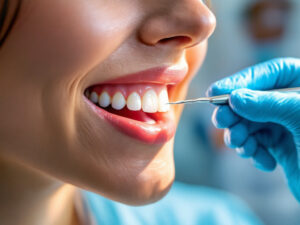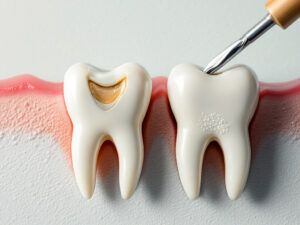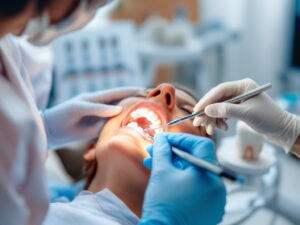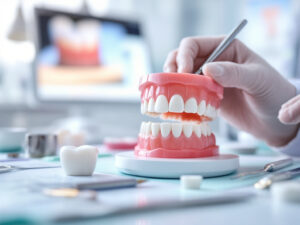Understand oral cancer screening
Oral cancer screening is an essential preventive measure that can save lives. It involves examining your mouth for early signs of cancer before any symptoms become severe or harder to treat. When you prioritize oral cancer screening, you empower yourself and your loved ones with crucial information about oral health. By detecting suspicious patches, sores, or lumps in the mouth early on, you have a better chance of receiving timely treatment that limits the spread of cancer cells and protects healthy tissue.
Screening evaluations are especially important because oral cancer can develop without causing obvious pain or discomfort at first. According to the Cleveland Clinic, about 11 persons in 100,000 will develop oral cancer at some point in their lifetime, and men are more likely than women to face this condition (Cleveland Clinic). Early detection often results in more favorable outcomes, and approximately 63% of individuals with oral cavity cancer are alive five years after diagnosis, a statistic that underscores why consistent screenings truly matter for your overall wellness.
In addition, advances in dental technology have made screenings more accurate. Simple, non-invasive evaluations can alert your dentist to potential concerns long before you notice changes in your mouth. If you have family members of varying ages, scheduling a routine dental checkup for everyone can be an excellent way to stay on top of possible issues. By including an oral cancer screening in that checkup, young adults, older adults, and anyone in between benefit from a proactive approach to health.
At Cloninger Dentistry, we know how important it is to provide a supportive, empathetic environment. We emphasize careful listening and personalized treatment to help ensure that you stay informed, motivated, and comfortable. With our expertise in preventive hygiene and comprehensive family care, we are committed to helping you and your loved ones thrive.
Recognize key risk factors
Understanding the factors that raise your susceptibility to oral cancer is a powerful step toward protection. Some of the most significant risks can be influenced by lifestyle choices, while others depend on biological or environmental factors. Being informed about each risk factor can help you reduce or manage your chances of developing oral cancer.
- Tobacco use: Cigarettes, cigars, pipes, and chewing tobacco drastically increase the likelihood of oral cancer, especially with long-term and heavy use. Experts widely agree that tobacco use is the single most impactful risk factor for cancers of the mouth, and quitting significantly lowers future risk.
- High alcohol consumption: Drinking alcohol in large quantities frequently is another leading contributor. Excessive drinking weakens the tissues in your mouth and throat, making them more susceptible to cancer. Combining heavy drinking and tobacco use can multiply cancer risk even more.
- Human papillomavirus (HPV): HPV infection, especially HPV type 16, is associated with oral and oropharyngeal cancers. These HPV-related cancers often affect the tonsils and base of the tongue.
- Age and genetics: Oral cancer is more common in individuals over 55, but it can occur at younger ages, especially in cases linked to HPV. A family history of certain gene defects may elevate your risk.
- Sun exposure: Frequent or unprotected exposure to the sun could lead to cancer on the lips. If you spend a lot of time outdoors, wearing lip balm or sunscreen on your lips is an important preventive measure.
- Diet and nutrition: A diet lacking in fruits and vegetables may fail to provide the antioxidants and nutrients your body needs to protect cells from damage. According to the American Cancer Society, people who eat a predominantly plant-based diet, maintain a healthy weight, and avoid tobacco and heavy alcohol use can reduce their risk significantly.
- Weak immune system: Certain immune system disorders or medications can make you more vulnerable to infections and cancers. If you have a weakened immune system, diligent monitoring of your oral health becomes paramount.
Staying mindful of these risk factors helps you make healthier choices. Limiting tobacco or alcohol use, and following a nutritious diet rich in fruits and vegetables can positively impact your oral health in both the short and long term. Remember that each person’s situation is unique; discussing your lifestyle and medical history with a dedicated dental professional at Cloninger Dentistry can help you create an individualized plan for managing and reducing risk.
Observe common warning signs
Oral cancer can appear in various ways, sometimes with minimal or subtle warning signs at the beginning. By learning what to look for, you improve your ability to catch potentially serious issues at an earlier, more treatable stage. According to the Mayo Clinic, you should contact a healthcare professional if any of the following conditions persist for more than two weeks (Mayo Clinic):
- Sores or lesions that do not heal: An ulcer or sore on the lips or inside the mouth that remains irritated, bleeds easily, or fails to heal completely could be an early indicator.
- Unusual patches: White (leukoplakia) or red (erythroplakia) patches, or a combination of both, might signal abnormal changes within the mouth. These patches can sometimes feel rough or raised.
- Loose teeth: Oral cancer around the gums or jaw can interfere with stability, potentially causing teeth to shift or loosen unexpectedly.
- Lumps or thickening: Any growth or lump that you notice in the mouth, cheeks, or neck area may require professional evaluation.
- Mouth or throat pain: Persistent pain, numbness, or discomfort in the mouth or throat can indicate more than a temporary irritation.
- Difficulty swallowing or chewing: Feeling like food is getting stuck, experiencing pain while chewing, or struggling to move your tongue or jaw might be tied to abnormal tissue growth.
- Ear pain: Earaches or pain originating in this region can be linked to areas in the mouth and throat due to shared nerve pathways.
Many of these symptoms can also be related to conditions that are far less serious. Nevertheless, if you notice any combination of these signs, it is wise to schedule a comprehensive checkup sooner rather than later. Regular self-checks at home and monthly examinations of your mouth, gums, and the back of your throat can be an invaluable habit. If something feels different or you see suspicious spots, prompt consultation with your dental team is the best step forward.
Guided by compassion and a caring approach, Cloninger Dentistry performs thorough evaluations to clarify any concerns and ease any anxieties you may have about these symptoms. Our team focuses on ensuring a seamless process where your questions are answered and support is readily available at every turn.
Explore the screening process
When you choose to have an oral cancer screening as part of your preventative dental care routine, you may wonder what the process involves and whether it will be time-consuming or uncomfortable. Fortunately, oral cancer screenings are usually quick, painless, and incredibly valuable. They are often integrated into your routine dental checkup, so you do not need to schedule a separate appointment.
Here is what you can expect:
-
Visual examination
Your dentist or hygienist will begin by examining your lips, cheeks, gums, and tongue, looking for any red or white patches, unusual swelling, or suspicious spots. They might ask you to stick out your tongue or move it from side to side with a gauze pad so that all areas are visible. -
Physical palpation
In addition to inspecting visually, your dentist may gently feel around your jaw, neck, and throat to detect lumps or irregularities. This step allows for the identification of potential growths beneath the surface that you might not notice yourself. -
Analyzing risk factors
As part of your new patient dental exam, you may be asked about your medical history, dietary habits, and any tobacco or alcohol use. This conversation helps your dental team understand your risk profile and determine if more thorough diagnostic tests are necessary. -
Supplementary diagnostic methods
Under some circumstances, your dentist might use specialized light-based instruments or dyes that highlight abnormal cells in your mouth. If an area looks suspicious, you may be referred for a biopsy or advanced imaging. As the Mayo Clinic notes, tools such as CT scans, MRIs, or PET scans often play a role in accurately staging or diagnosing oral cancer.
By incorporating this screening into your professional teeth cleaning appointment or regular visit, you significantly increase the likelihood that any issues will be spotted early. Yearly exams, semiannual checkups, or a schedule recommended specifically for you will give you peace of mind. For younger family members, combining pediatric dental care with screening ensures they learn good habits from a young age and become accustomed to thorough mouth evaluations.
Consider available treatment options
If you or someone you love receives a diagnosis following an oral cancer screening, learning about potential treatment paths can lessen uncertainty about the road ahead. Timely treatment is often the key to preventing the cancer from advancing, and modern healthcare provides multiple ways to approach the condition. Any treatment plan will likely be customized based on a variety of components, including the cancer’s location, how advanced it is, and your general health.
- Surgery: Surgical removal of the tumor is commonly the first line of treatment, especially for localized cancers. Surgeons may remove not only the visible tumor but also nearby tissue and lymph nodes in the neck to ensure that no cancer cells have spread.
- Radiation therapy: Often used in conjunction with surgery or as a standalone approach, radiation therapy targets cancerous cells with high-energy beams. It can help eliminate cancer remnants following surgery or reduce tumor size prior to an operation.
- Chemotherapy: Medications administered orally or intravenously destroy cancer cells by targeting rapidly dividing cells. Chemotherapy might be used alongside radiation to enhance effectiveness, especially for aggressive or advanced cancers.
- Targeted therapy: These treatments focus on specific proteins or markers found within cancer cells, sabotaging the cells’ ability to grow or multiply. Doctors often use targeted therapies alongside chemotherapy or radiation, depending on the specific traits of the tumor.
- Immunotherapy: By boosting your body’s defenses, immunotherapy teaches your immune system to recognize and attack cancer cells. This method has proven particularly helpful in certain types of advanced cancer.
- Rehabilitation and reconstruction: Oral cancer can affect speech, swallowing, and physical appearance. Following surgery or radiation, specialists might suggest physical therapy, speech therapy, or reconstructive surgeries to help you regain comfort and functionality.
Each treatment choice involves an open discussion between you, your dentist, and your medical team to determine the best route. Cloninger Dentistry can be a supportive resource during this stage by coordinating with your doctors and taking steps to safeguard your oral health. Our staff remains dedicated to easing your worries, offering an empathetic listening ear, and providing practical recommendations. We seek to ensure that you feel both informed and empowered to make decisions that fit your needs.
Adopt healthy prevention habits
When you address risk factors early and embrace beneficial habits, you build layers of protection for your mouth. Even small changes in your daily routines can make a considerable difference in deterring the onset of oral cancer. While no prevention method is entirely foolproof, consistent healthy practices reduce your overall vulnerability.
- Stop or reduce tobacco
If you use tobacco products, the most impactful move you can make to protect your mouth is to stop. Smoking cessation programs, prescription aids, and behavioral strategies can help you quit at your own pace, significantly diminishing the odds of developing oral lesions or advanced cancer. - Limit alcohol consumption
Moderation is crucial. Sticking to recommended guidelines, such as no more than two drinks a day for men and one for women (NYU Langone), helps your body maintain healthier mucosal tissues in the mouth. - Practice sun safety
Protecting your lips with a lip balm that includes at least SPF 30 is an effective way to limit sun-induced damage. Wear a wide-brimmed hat if you spend extended periods outdoors. - Pay attention to nutrition
Incorporate fruits and vegetables into your meals. They provide fiber, antioxidants, and essential vitamins that can help keep your cells strong and resilient. - Schedule regular screenings
It bears repeating that the most reliable way to detect early-stage cancer is through scheduled checkups. Aim to see a dentist for an oral evaluation at least once or twice a year. - Maintain dental hygiene
A clean mouth helps reduce inflammation and irritation. Regular brushing, flossing, and professional teeth cleaning remove bacteria and plaque, improving your oral environment. - Stay vigilant
Perform monthly self-exams in front of a mirror. Look at the inside of your cheeks, your tongue, lips, and gums to spot any unusual lumps or sores. Early detection is often a matter of consistent observation.
These prevention strategies can become natural parts of your lifestyle. Once you establish firm habits like moderate alcohol use or tobacco avoidance, you reduce your risk not only of oral cancer but also of other serious illnesses. At Cloninger Dentistry, we respect that every patient has unique circumstances, so we are prepared to guide you according to your personal health goals and preferences.
Experience Cloninger Dentistry’s commitment
When it comes to your family’s dental needs, you want an environment that blends expertise, compassion, and convenience. At Cloninger Dentistry, that combination defines our approach. We understand that the road to lasting oral wellness can feel overwhelming, especially if you are concerned about cancer risks. Our dedicated staff aims to make every visit informative and reassuring, ensuring that you receive the support necessary for peace of mind.
We incorporate oral cancer screenings into our broader suite of preventive and cosmetic dentistry services. Checking for red or white patches, lumps, or any irregularities is part of our overarching commitment to safeguarding your smile. If follow-up tests are needed, we coordinate with specialized providers so that you can transition seamlessly into further diagnostic or treatment procedures. You never have to worry about navigating this journey alone.
In addition, we offer numerous services under one roof, such as fluoride treatment for fortifying tooth enamel, gum disease treatment to address inflammation and bacterial infections, and root canal therapy to preserve teeth damaged by deep decay. Whenever possible, we customize each treatment plan to align with both your schedule and your financial situation. Our insurance friendly dental practice can help you minimize out-of-pocket costs, and we also provide flexible financing dental solutions for your convenience.
Another core aspect of our care is education. Whether you visit our office for a new patient dental exam or a private dental consultation, we never rush your questions. We believe in giving you the resources to make informed decisions regarding the well-being of your whole family. By coming to us for your routine dental checkup, you secure both preventative care and a vital opportunity to detect possible health challenges early.
Ask FAQs about oral cancer screening
Below, you will find answers to some of the most common questions people have about oral cancer screening. If you have further concerns, feel free to reach out so that we can provide personalized guidance.
-
How often should I get oral cancer screening?
Most dentists recommend including an oral cancer screening once or twice a year during your regular dental visits. If you have higher risk factors, such as heavy tobacco or alcohol use, you may talk with your dentist about more frequent checkups. -
Does oral cancer screening hurt?
Oral cancer screenings are generally quick and painless. Your dentist visually inspects your mouth and gently palpates your neck and jawline. If any areas appear suspicious, further painless diagnostic procedures might be recommended for a more thorough evaluation. -
What happens if my dentist finds something unusual?
A suspicious spot, patch, or lump does not automatically mean cancer. However, your dentist may refer you for a biopsy or imaging tests to verify whether the area is harmless or requires treatment. Early identification can be a lifesaver, so do not hesitate to follow through with suggested diagnostics. -
Do I need to prepare for a screening in advance?
Typically, no special preparation is needed. It can be beneficial, however, to let your dentist know if you have noticed any tongue sores, throat pain, or unusual patches in your mouth. Providing your medical history and any details about tobacco, alcohol, or medications helps your dental team tailor the screening to your needs. -
Can oral cancer screenings detect other mouth-related issues?
While the screening specifically checks for cancerous changes, it may also reveal enamel erosion, gum disease, or other conditions like infections or ulcers. If something concerning is discovered, your dentist can recommend follow-up care, including treatments like painless cavity filling or broken tooth repair as necessary.
By proactively seeking screenings, you show that you value not only your own health, but also the well-being of loved ones who trust your guidance. Through routine visits, early detection, and consistent preventive measures, you reinforce a supportive environment where each family member feels confident about receiving the best possible care.
Whether you arrive at Cloninger Dentistry for professional teeth cleaning, a new patient dental exam, or to discuss your concerns about oral cancer, we stand ready to help you navigate questions and decisions about your health. Our team’s deep concern for your comfort, combined with a drive to stay at the forefront of dental technology, allows us to provide comprehensive care for every stage of life.
When you prioritize oral cancer screening, you take a vital step toward protecting yourself and those you love from the more serious implications of unnoticed cancer growth. Early detection and timely treatments can preserve your oral function, your confidence, and ultimately, your quality of life. Together, with empathy and expertise, we strive to empower you to make proactive choices that ensure a healthier future for your entire family.
